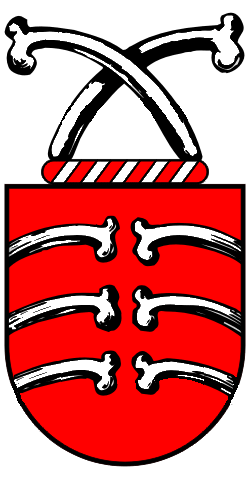Pinto is a Portuguese, Spanish, Jewish (Sephardic), and Italian surname. It is a high-frequency surname in all Portuguese-speaking countries and is also widely present in Spanish-speaking countries, Italy, India, France and Israel. Historically, it has been common among political elites in Portuguese- and Spanish-speaking countries, as numerous presidents, prime ministers, and heads of state have shared the surname.
Silva is a Portuguese and Galician surname widespread in the Portuguese-speaking countries, such as Portugal and Brazil. Origin: Latin toponymic silva. It is the family name of the House of Silva.
Pérez or Perez, as most commonly written in English, is a Castilian Spanish surname. Peretz or Perets is also common among people of Sephardi Jewish descent, and is the 4th most common surname in Israel, most common surname not of Hebrew language origin, and most common surname exclusive to a single Jewish ethnoreligious subgroup.
Luis is a given name. It is the Spanish form of the originally Germanic name Hludowig or Chlodovech. Other Iberian Romance languages have comparable forms: Luís in Portuguese and Galician, Lluís in Aragonese and Catalan, while Luiz is archaic in Portugal, but common in Brazil.
Rodrigo is a Spanish, Portuguese and Italian name derived from the Germanic name Roderick, given specifically in reference to either King Roderic, the last Visigothic ruler or to Saint Roderick, one of the Martyrs of Córdoba . The modern given name has the short forms Ruy, Rui, and in Galician Roy, Roi.
José is a predominantly Spanish and Portuguese form of the given name Joseph. While spelled alike, this name is pronounced very differently in each of the two languages: Spanish ; Portuguese.
Varela is a Galician, Spanish and Portuguese surname originating from Galicia.
Camacho is a surname of Spanish, Portuguese or French origin. Notable people with the surname include:
Menezes, sometimes Meneses, was originally a Portuguese toponymic surname which originated in Montes Torozos, a region in Tierra de Campos, northeast of Valladolid and southeast of Palencia. The ancestor of the Meneses lineage was Tello Pérez de Meneses. The family wealth and power grew remarkably in the 13th and 14th centuries, through several marriages with the Castilian and Portuguese royal families.
Gomes is a common Portuguese and Old Galician surname. Origin:Visigothic guma, meaning "man", later a first name, Gome and the patronym son of Gome.
Santos is a Spanish surname with several variations. It can also be a Portuguese and Galician surname. The English translation of Santos is Saints. A singular version, Santo, may occur. Origin: Christian, from Latin sanctus.
Josue is a name, a variant of the name Joshua. Notable people with the name include:
Torres is a surname in the Catalan, Portuguese, and Spanish languages, meaning "towers".

Costa, sometimes Costas, da Costa, Da Costa, or Dalla Costa, is an Italian, Spanish, Portuguese, Galician, Catalan, French, and Greek mostly toponymic surname. The surname spread throughout the world through colonization. It was also a surname chosen by former Jews due to Roman Catholic and other Christian conversions.
Miranda is a Spanish, Portuguese, Sephardic Jewish, Italian and Maltese surname of Latin origin, meaning "worthy of admiration".

Osorio is a surname of Spanish, Portuguese and Basque origins. One meaning of the name is “hunter of wolves”. Notable people with this surname include:
Barreto is a surname of Portuguese origin, also found in the former Portuguese colonies of Brazil, Angola, Mozambique, Timor-Leste and Goa as well as Spain and Latin America. In 1786, the title of Conde de Casa Barreto was created by King Charles III of Spain and bestowed upon Jacinto Tomás Barreto of Havana, Cuba.
Salgado is a Galician and Portuguese surname.


